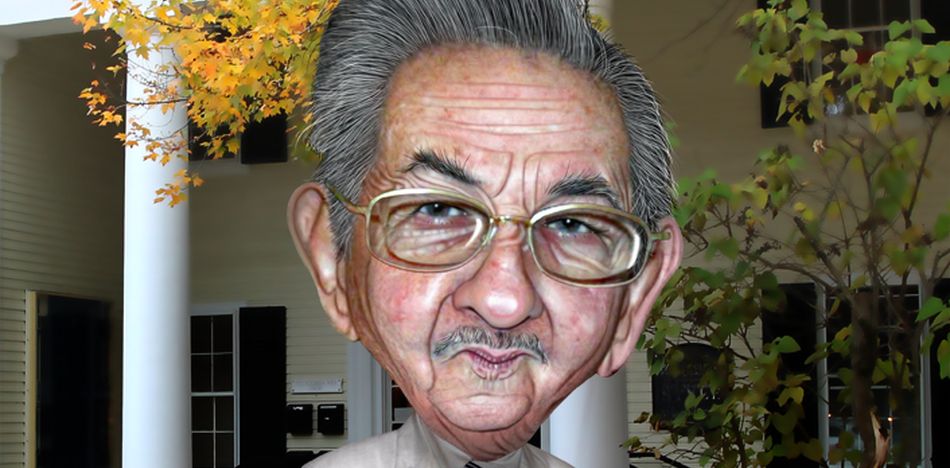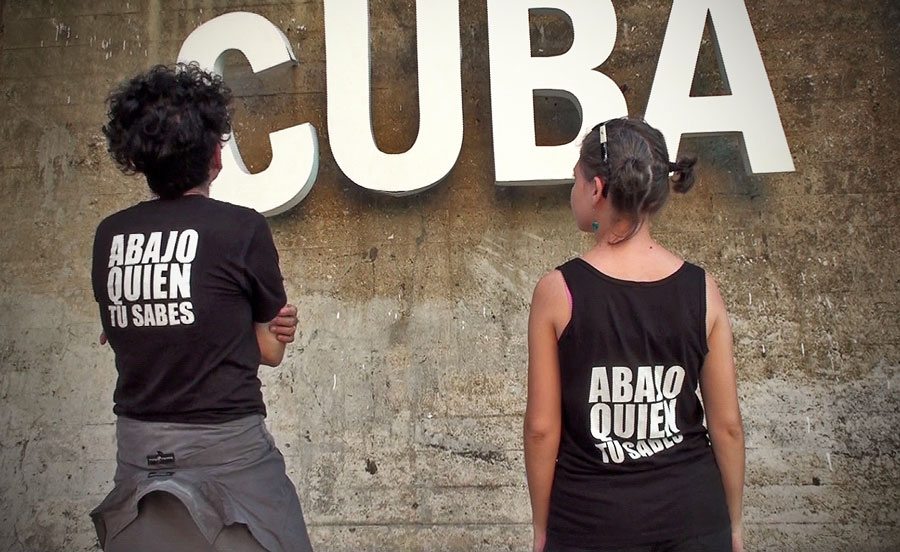
EspañolThe regime in Cuba prevented independent journalist and writer Víctor Manuel Domínguez from leaving the country for the second time this year. The journalist was planning to travel to Brussels for an event on foreign investment in Cuba, when he was told he could not leave the country due to a “State Security order.”
“They say that in Cuba you can travel freely if you aren’t under investigation for any crime. I’ve committed no crime, but am being kept here because they say that I’m a counterrevolutionary,” Domínguez, who had previously been denied from leaving the country on July 15, said.
He said a uniformed official took him into an office and explained that she wasn’t sure why he wasn’t allowed to travel either. She said it might have to do with citizenship or immigration policies, but that Domínguez would have to look into it himself.
“It doesn’t do any good to complain,” he said. “It’s a diabolical system.”
The Cuban regime has repeatedly prevented Castro opponents from leaving the country, imposing transit restrictions as a frequent practice. In fact, Domínguez recalled the case of Yusimí Rodríguez, a journalist with Diario de Cuba, who was also prevented from traveling on more than one occasion without further explanation.
Domínguez said the travel bans in Cuba have become more frequent for journalists and activists this year, and the modus operandi is, generally, the same: before boarding, passengers who are on a list are alerted they can’t travel and are therefore prevented from boarding the aircraft.
“(It’s) very common, not just now, but always, when there was the so-called carte blanche and Cubans had to request a humiliating exit permit,” Cuban activist Lía Villares said.
In June alone, at least 55 activists were denied departure from the island for political reasons, according to Villares, who personally keeps track of the incidents. She also holds onto images and documents related to travel bans, including plane tickets and immigration stamps.

They have given no justification, Lia said. “The authorities don’t usually give prior notification or verbal motive. They merely make precarious acknowledgments (in ink, by hand, without stamps or other legal certification) to the complaints that some … of us have filed.”
Previously, they justified their actions with pending fines or ongoing legal investigations, but lately, they don’t even bother to use legitimate explanations, or to follow any “procedures” one might find at a border.
Villares was able to record an audio in the Immigration office, which has been uploaded to YouTube. Lieutenant Colonel “Virginia” of the Ministry of Interior, can be heard describing a situation as “a bureaucratic rice with mango (a typical cuban dish, meaning that it is an everyday, normal occurrence) intended to keep us ‘entertained’ as we float through a legal limbo where nobody actually takes care of any problem.”
During another case in 2013, the person in charge of checking luggage ripped up her ticket and told her that she would not be allowed to travel. Though she eventually was able to fly on that occasion, since she had already crossed through customs, she believes the incident was meant to intimidate her. But now she has tried five times this year and has not been allowed to fly.
- Read More: Victim of “Sonic Attacks” in Cuba Says US Government Delayed Response for Months
- Read More: Cuban Military Court Sentences US Citizen to 13 Years in Prison for Alleged Espionage
She said journalists are arbitrarily detained and imprisoned for short periods, and sometimes accused of “usurping duties,” which means that independent journalistic activity is illegal.
“It’s particularly alarming to me that both freedom of information and freedom of movement are considered minor things next to freedom of expression, association and peaceful demonstration,” she said. “Within the same circle of opponents, talking about free Internet access has become almost a joke. The same is true of freedom of movement, but until they have experienced it for themselves they should’t trivialize it. I think it’s more alarming that this arbitrary measure is being applied almost daily and that there is no pronouncement of any human rights organization.”
Mamela Fiallo contributed to this article.
Sources: Cubanet, Diario de Cuba, Cibercuba.
 Versión Español
Versión Español












